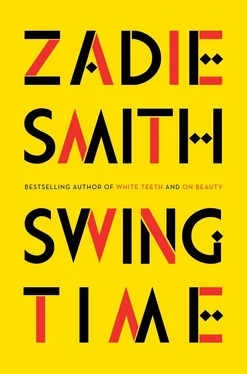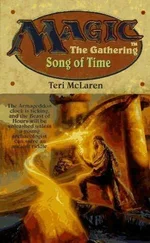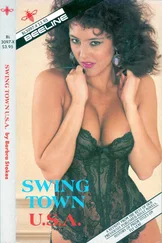Zadie Smith - Swing Time
Здесь есть возможность читать онлайн «Zadie Smith - Swing Time» весь текст электронной книги совершенно бесплатно (целиком полную версию без сокращений). В некоторых случаях можно слушать аудио, скачать через торрент в формате fb2 и присутствует краткое содержание. Город: NYC, Год выпуска: 2016, ISBN: 2016, Издательство: Penguin Publishing Group, Жанр: Современная проза, на английском языке. Описание произведения, (предисловие) а так же отзывы посетителей доступны на портале библиотеки ЛибКат.
- Название:Swing Time
- Автор:
- Издательство:Penguin Publishing Group
- Жанр:
- Год:2016
- Город:NYC
- ISBN:978-0-39956-431-4
- Рейтинг книги:4 / 5. Голосов: 1
-
Избранное:Добавить в избранное
- Отзывы:
-
Ваша оценка:
- 80
- 1
- 2
- 3
- 4
- 5
Swing Time: краткое содержание, описание и аннотация
Предлагаем к чтению аннотацию, описание, краткое содержание или предисловие (зависит от того, что написал сам автор книги «Swing Time»). Если вы не нашли необходимую информацию о книге — напишите в комментариях, мы постараемся отыскать её.
Dazzlingly energetic and deeply human,
is a story about friendship and music and stubborn roots, about how we are shaped by these things and how we can survive them. Moving from northwest London to West Africa, it is an exuberant dance to the music of time.
Swing Time — читать онлайн бесплатно полную книгу (весь текст) целиком
Ниже представлен текст книги, разбитый по страницам. Система сохранения места последней прочитанной страницы, позволяет с удобством читать онлайн бесплатно книгу «Swing Time», без необходимости каждый раз заново искать на чём Вы остановились. Поставьте закладку, и сможете в любой момент перейти на страницу, на которой закончили чтение.
Интервал:
Закладка:
I brought in my biographies of dancers, thick books with soft-focus seventies portraits on the cover, of the great stars in their old age — in their silk dressing gowns and cravats, in their pink ostrich-feather capes — and on page count alone it was decided that my future should be “discussed.” My mother came in for a meeting, early, before school, where she was told that the same books she sometimes teased me for reading were evidence of my intelligence, and that there was a test such “gifted” children could take, which, if they passed, would enable them to attend the kind of good schools that give scholarships — no, no, no — no fees, don’t worry, I meant “grammars,” which are a different thing altogether, no money involved at all, no, no, please don’t worry. I glanced at my mother, whose face gave nothing away. It’s because of the reading age, explained the teacher, passing over our silence, you see her reading age is really quite advanced. The teacher looked my mother over — her bra-less vest and jeans, the kente-cloth head-wrap, a pair of huge earrings shaped like Africa — and asked if the father would be joining us. The father’s at work, said my mother. Oh, said the teacher, turning to me, and what does your father do, dear, is he the reader of the house, or…? The father’s a postman, said my mother. The mother’s the reader. Now, normally, said the teacher, blushing, consulting her notes, normally, we don’t suggest the entrance exam for the independent schools really. I mean, there are some scholarships available but there’s no point setting these kids up for disappointment… But this young Miss Bradwell we’ve had in recently thought perhaps, well, she thought that, in your daughter’s situation, it might just be the case that…
We walked home in silence, there was nothing more to discuss. We had already been to visit the huge and raucous comp I’d be attending in the autumn, it had been sold to me on the promise it had a “dance studio” somewhere in that warren of scuffed corridors, Portakabin classrooms and temporary toilets. Everyone that I knew — excepting Tracey — was heading there, and this was one comfort: safety in numbers. But my mother surprised me. In the grounds of the estate she stopped at the base of the stairwell and told me that I’d take that test, and work hard to pass it. No dancing at the weekend, no distractions of any kind, I was being given the kind of opportunity, she said, that she had never had herself, having been advised, at the same age I was now — and by her own teachers — to work on mastering forty words a minute, like all the other black girls.
It felt to me as if I were on a certain train, heading wherever it was people like me usually went in adolescence, except now suddenly something was different. I’d been informed that I would be getting off at an unexpected stop, further down the line. I thought of my father, pushed off the train before he’d barely left the station. And of Tracey, so determined to jump off, exactly because she’d rather walk than be told which stop was hers or how far she was allowed to go. Well, wasn’t there something noble in that? Wasn’t there some fight in it, at least — some defiance? And then there were all the outrageous historical cases I heard of at my mother’s knee, tales of the furiously talented women — and these were all women, in my mother’s telling — women who might have run faster than a speeding train, if they had been free to do so, but for whom, born in the wrong time, in the wrong place, all stops were closed, who were never even permitted to enter the station. And wasn’t I so much freer than any of them — born in England, in modern times — not to mention so much lighter, so much straighter of nose, so much less likely to be mistaken for the very essence of Blackness itself? What could possibly stop me traveling on? Yet when I sat down in my own school hall, on a stifling July day, outside of normal school hours — an unnatural time to be at school — and opened those test papers, to read through the opportunity my mother wished I would “grab with both hands,” a great, sullen fury came over me, I didn’t feel like traveling on their train, wrote a few words here and there, ignored the pages of maths and science, flagrantly failed.
A few weeks later, Tracey got into her stage school. Her mother had no choice but to ring my mother’s doorbell, enter our flat and tell us all about it. She stuck Tracey in front of her like a shield, shuffled into the hall, wouldn’t sit down or have tea. She’d never been over the threshold before. “The judges said they’d not seen anything like her original”—Tracey’s mother stopped dead and looked angrily at her daughter, who then provided the unfamiliar word—“original choreography , not like that. That’s how new it was. Never! I always told her that she’d have to be twice as good as the next girl to get anywhere,” she said, hugging her Tracey into her mammoth bosom, “and now she is.” She had a video of the audition to give us, which my mother took graciously enough. I found it under a pile of books in her bedroom and watched it alone one night. The song was “Swing Is Here to Stay” and every movement, every blink, every nod, was Jeni LeGon’s.
That autumn, in my first term at my new school, I found out what I was without my friend: a body without a distinct outline. The kind of girl who moved from group to group, neither welcomed nor despised, tolerated, and always eager to avoid confrontation. I felt I made no impression. There were, for a while, a couple of girls in the year above who believed I prided myself on my high color, on my long nose, on my freckles, and they bullied me, stole money from me, harassed me on the bus, but bullies need resistance of some kind, even if it’s only tears, and I gave them none and they soon got bored and left me alone. Most of my years in that school I don’t remember. Even as I was living them a stubborn part of me never accepted it as anything more than a place I had to survive each day until I was free again. I was more engaged with what I imagined of Tracey’s schooling than with the reality of my own. I remember her telling me, for example, not long after she arrived in the place, that when Fred Astaire died, her school held a memorial assembly, and some of the students were asked to dance in tribute. Tracey, dressed as Bojangles, in a white top hat and tails, brought the house down. I know I never saw her do this but even now I feel I have a memory of it.
Thirteen, fourteen, fifteen, the difficult middle passage — in those years I really didn’t see much of her. Her new life swallowed her up. She was not there when my father finally moved out or when I got my period. I don’t know when she lost her virginity or if and by whom she first got her heart broken. Whenever I saw her in the streets it seemed to me that she was doing well. She would be wrapped around a very handsome, mature-looking young man, often tall and with a sharp fade cut into his hair, and I think of her on these occasions as not so much walking as bouncing by — fresh-faced, hair pulled up tight in a dancer’s bun, wearing neon leggings and a crop top — but also red-eyed, clearly stoned. Electric, charismatic, outrageously sexual, filled with the summer’s energy at all times, even in freezing February. And to come across her like this, as she really was — that is, outside of my own envious ideas about her — was always a form of existential shock, like seeing someone from a storybook in real life, and I would do everything I could to make the encounter as brief as possible, sometimes crossing the street before she reached me, or jumping on a bus, or claiming to be heading for somewhere urgently. Even when I heard, a little later on, from my mother and others in the neighborhood, that she was having difficulties, more and more frequently in trouble, I couldn’t imagine why that would be, her life was perfect as far as I was concerned, and this is one side-effect of envy, maybe, this failure of imagination. In my mind, her struggles were over. She was a dancer: she’d found her tribe. I, meanwhile, was caught completely unawares by adolescence, still humming Gershwin songs at the back of the classroom as the friendship rings began to form and harden around me, defined by color, class, money, postcode, nation, music, drugs, politics, sports, aspirations, languages, sexualities… In that huge game of musical chairs I turned round one day and found I had no place to sit. At a loss, I became a Goth — it was where people who had nowhere else to go ended up. Goths were already a minority, and I joined the oddest chapter, a small group of only five kids. One was from Romania and had a club foot, another was Japanese. Black Goths were rare but not unprecedented: I’d seen a few of them hanging around Camden and now copied them as best I could, dusting my face ghost-white and painting my lips blood red, letting my hair half-dread and spraying some parts of it purple. I bought a pair of Dr. Martens and covered them in Tipp-Exed anarchy symbols. I was fourteen: the world was pain. I was in love with my Japanese friend, he was in love with the fragile blonde in our circle who had scars all up her arms and looked like a broken cat left out in the rain — she couldn’t love anybody. For almost two years we spent all our time together. I hated the music, and there was no dancing allowed — just pogoing up and down, or else swaying drunkenly into each other — but I liked that the political apathy disgusted my mother and that the brutality of my new look brought out the keenly maternal side of my father, who now worried about me endlessly and tried to feed me up as I gothically lost weight. I bunked off for the greater part of each week: the bus that went to school also went to Camden Lock. We sat on the towpaths, drinking cider and smoking, DMs hanging over the canal, discussing the phoniness of everyone we knew, free-form conversations that could eat up whole days. Violently I denounced my mother, the old neighborhood, everything from my childhood, above all Tracey. My new friends were made to listen to every detail of our mutual history, all of it retold in a bitter spirit, stretching back to the very first day we met, walking across a churchyard. After an afternoon of that I’d get back on the bus, pass by the grammar school I’d failed to get into and get off at a stop outside — but precisely outside — my father’s new bachelor flat, where I could happily go back in time, eat his comfort food, indulge in the old secret pleasures. Judy Garland pretending to be a Zulu, dancing the cakewalk, in Meet Me in St. Louis.
Читать дальшеИнтервал:
Закладка:
Похожие книги на «Swing Time»
Представляем Вашему вниманию похожие книги на «Swing Time» списком для выбора. Мы отобрали схожую по названию и смыслу литературу в надежде предоставить читателям больше вариантов отыскать новые, интересные, ещё непрочитанные произведения.
Обсуждение, отзывы о книге «Swing Time» и просто собственные мнения читателей. Оставьте ваши комментарии, напишите, что Вы думаете о произведении, его смысле или главных героях. Укажите что конкретно понравилось, а что нет, и почему Вы так считаете.












